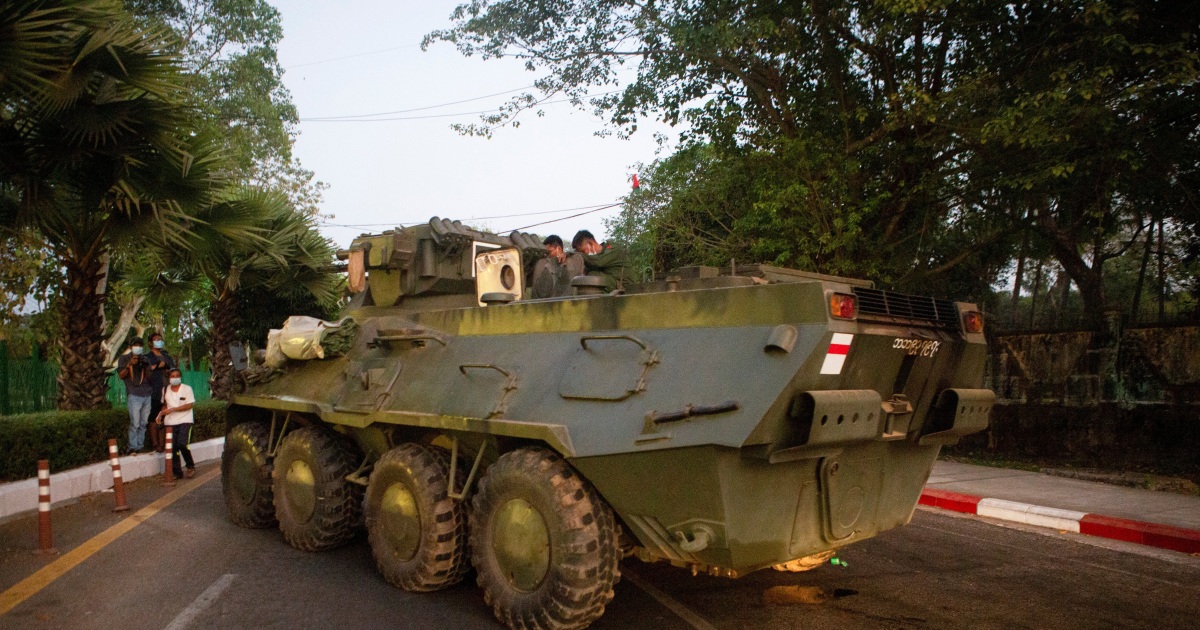
Hundreds of thousands of protesters took to the streets in Myanmar on Sunday for a ninth day of anti-coup demonstrations, as the new army leaders struggled to stem a strike by government workers that could paralyze their ability to run the country.
Trains in parts of the country stopped running after staff refused to work, local media reported, as the military sent soldiers to power plants to face angry crowds.
As night fell, armored vehicles were seen in the commercial capital of Yangon for the first time since the coup, witnesses said.
A civil disobedience movement to protest the February 1 coup that overthrew the civilian government led by Aung San Suu Kyi started with doctors. It now affects a whole host of government departments.
The junta ordered officials to return to work and threatened action. The military has carried out nighttime mass arrests and given itself extensive powers on Saturday to detain people and search private property.
But hundreds of railway workers joined demonstrations in Yangon on Sunday, even as police went to their housing complex on the outskirts of the city to get them back to work. According to a live broadcast from Myanmar Now, police were forced to leave after angry crowds gathered.
Soldiers were deployed at power plants in the northern state of Kachin, leading to a showdown with protesters who said they planned to cut electricity to make nightly arrests.
“The military has been trying to control electricity sources since yesterday,” said Awng Kham, a local politician. “They may be able to control the power at night while doing their business at night.”
Several power departments in Yangon said in Facebook posts that they would refuse to cut off power and expressed support for the protesters. “Our duty is to provide electricity, not to cut,” said a staff member, who for fear of retaliation, asked not to be named, adding that some colleagues were on the strike.
The government and military could not be reached for comment.
On Sunday, engineering students marched through the center of Yangon, the largest city, dressed in white and holding signs demanding the release of deposed leader Suu Kyi, who has been in custody since the coup and accused of importing walkie-talkies.
A fleet of buses drove slowly through the city with car horns, part of the biggest street protests in over a decade.
Download the NBC News app for breaking news and politics
A convoy of motorcycles and cars drove through the capital, Naypyitaw. In the southeastern coastal town of Dawei, a band played drums as the crowds marched under the hot sun. In Waimaw, Kachin State, crowds carried flags and sang revolutionary songs.
Many of the protesters across the country held up images of Suu Kyi.
Her detention ends on Monday. Her lawyer, Khin Maung Zaw, was not available to comment on what was about to happen.
More than 384 people have been detained since the coup, the Assistance Association for Political Prisoners monitoring group said, in a wave of mostly nighttime arrests.
Late Saturday, the military reinstated a law requiring people to report overnight visitors to their homes, allowing security forces to detain suspects and search private properties without court permission, and ordered the arrest of known mass protest donors.
President Joe Biden announced last week that his government will impose sanctions on those involved in the coup and demanded that the country immediately return power to that country’s democratically elected government.
